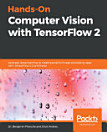Data Mining: A Knowledge Discovery Approach
Krzysztof J. Cios · Witold Pedrycz · Roman W. Swiniarski · Lukasz Andrzej Kurgan
ต.ค. 2007 · Springer Science & Business Media
5.0star
1 รีวิวreport
eBook
606
หน้า
reportคะแนนและรีวิวไม่ได้รับการตรวจสอบยืนยัน ดูข้อมูลเพิ่มเติม
เกี่ยวกับ eBook เล่มนี้
“If you torture the data long enough, Nature will confess,” said 1991 Nobel-winning economist Ronald Coase. The statement is still true. However, achieving this lofty goal is not easy. First, “long enough” may, in practice, be “too long” in many applications and thus unacceptable. Second, to get “confession” from large data sets one needs to use state-of-the-art “torturing” tools. Third, Nature is very stubborn — not yielding easily or unwilling to reveal its secrets at all. Fortunately, while being aware of the above facts, the reader (a data miner) will find several efficient data mining tools described in this excellent book. The book discusses various issues connecting the whole spectrum of approaches, methods, techniques and algorithms falling under the umbrella of data mining. It starts with data understanding and preprocessing, then goes through a set of methods for supervised and unsupervised learning, and concludes with model assessment, data security and privacy issues. It is this specific approach of using the knowledge discovery process that makes this book a rare one indeed, and thus an indispensable addition to many other books on data mining. To be more precise, this is a book on knowledge discovery from data. As for the data sets, the easy-to-make statement is that there is no part of modern human activity left untouched by both the need and the desire to collect data. The consequence of such a state of affairs is obvious.
การให้คะแนนและรีวิว
5.0
1 รีวิว
ให้คะแนน eBook นี้
แสดงความเห็นของคุณให้เรารับรู้
ข้อมูลในการอ่าน
สมาร์ทโฟนและแท็บเล็ต
ติดตั้งแอป Google Play Books สำหรับ Android และ iPad/iPhone แอปจะซิงค์โดยอัตโนมัติกับบัญชีของคุณ และช่วยให้คุณอ่านแบบออนไลน์หรือออฟไลน์ได้ทุกที่
แล็ปท็อปและคอมพิวเตอร์
คุณฟังหนังสือเสียงที่ซื้อจาก Google Play โดยใช้เว็บเบราว์เซอร์ในคอมพิวเตอร์ได้
eReader และอุปกรณ์อื่นๆ
หากต้องการอ่านบนอุปกรณ์ e-ink เช่น Kobo eReader คุณจะต้องดาวน์โหลดและโอนไฟล์ไปยังอุปกรณ์ของคุณ โปรดทำตามวิธีการอย่างละเอียดในศูนย์ช่วยเหลือเพื่อโอนไฟล์ไปยัง eReader ที่รองรับ





